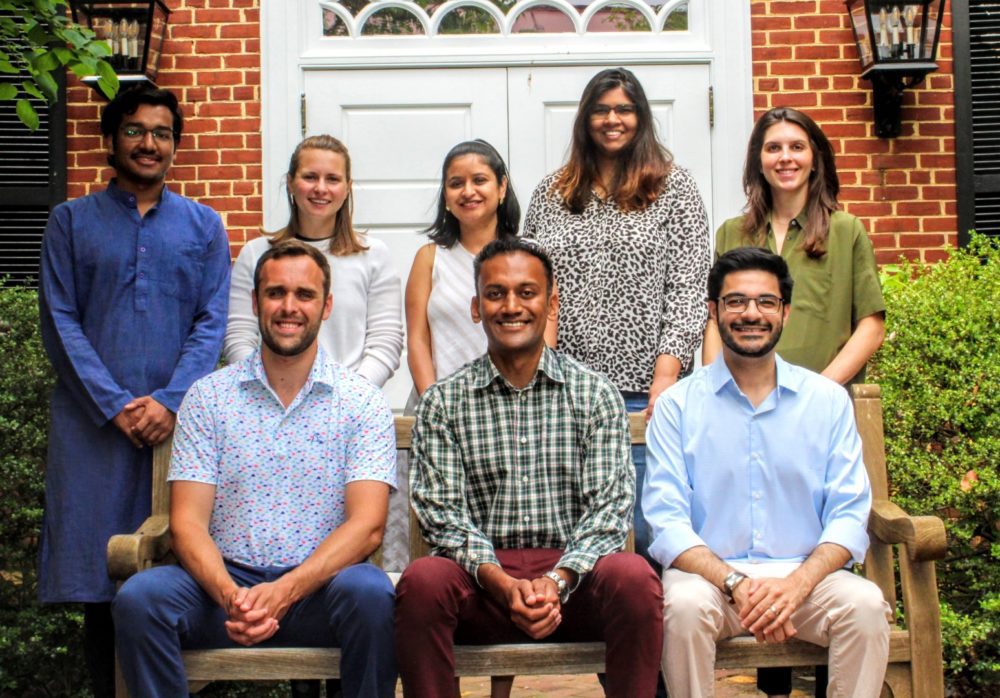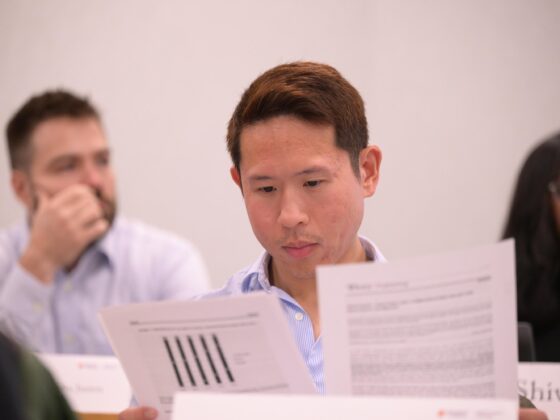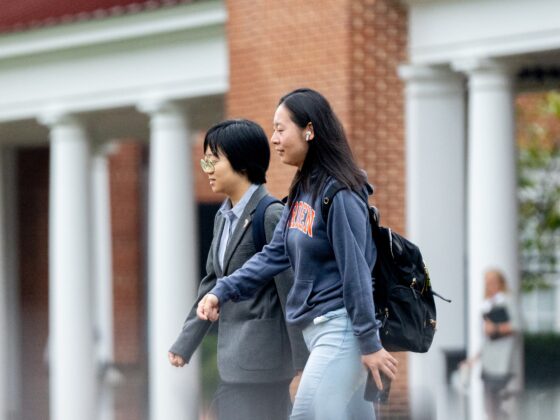Today’s post features an example of how a student interest can lead to even bigger and better ideas for the whole School. Pranav Dalmia (MBA ’21) established a new student-run organization in 2020 — Business Ethics at Darden. Along with the support of the eight inaugural leadership team members, Dalmia launched this new organization with the mission to “To promote awareness, discussion and action at the intersection of business and ethics at Darden. The club will empower members by providing a platform to engage with like-minded individuals, academic thought-leaders and influential industry practitioners.”
Pictured: Business Ethics at Darden 2020-2021 leadership team (Standing (L-R): Prabhat Gusain, Kate Luther, Kshamta Bishnoi, Samantha Lopez, Alexa Asendorf Seated (L-R): Charlie Putnam, Pranav Dalmia, Ehab Ansari Not pictured: Ryan Moore)
Dalmia recently shared more about his journey to Darden, advice for prospective MBAs and how the idea for a formalized business ethics club came to light.
What did your journey to Darden look like?
My passion for learning and curiosity about the world have driven the decisions I have made through the course of my life. After having concentrated on the natural sciences in high school, I decided to pursue an undergraduate in Philosophy at the University of Delhi. I then united my two fields of study and obtained an M.Sc. in Philosophy of Science from the London School of Economics and Political Science. Entering the workforce thereafter, I began with a stint as a consultant with EY. Most of my professional experience, though, was working at Dalmia Continental, a consumer packaged goods company owned by my family, best known for popularizing the use of olive oil and canola oil in India.
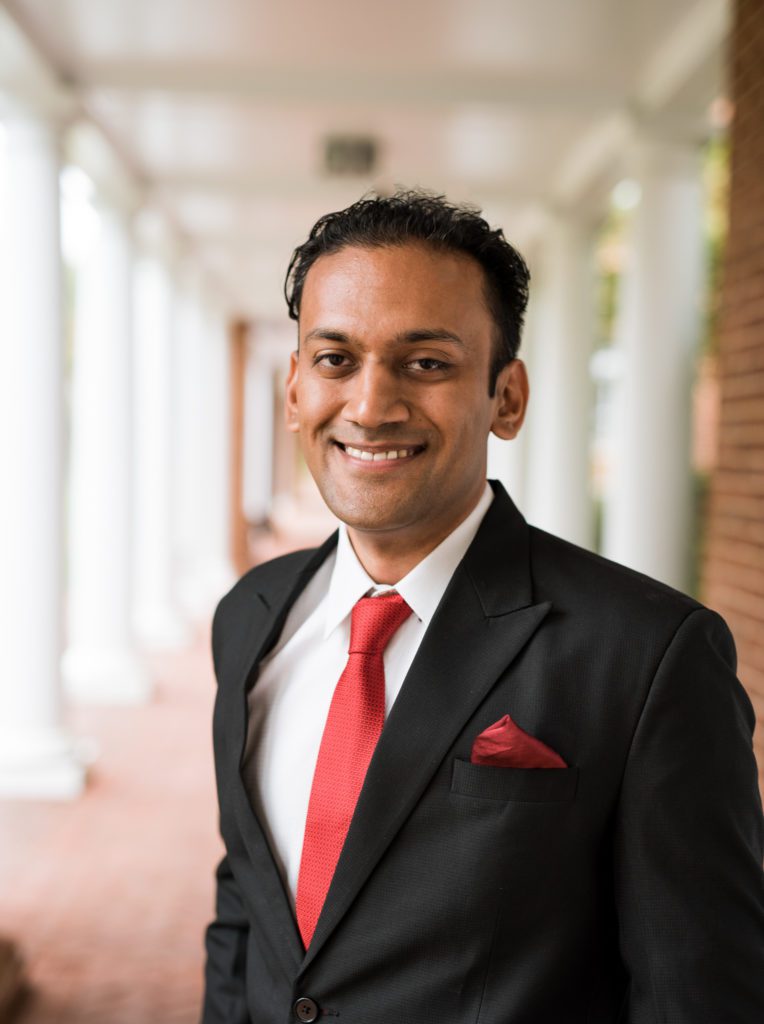
Having gained much practical experience with the business world, formal training in the shape of an MBA was a logical next step. Darden was a no-brainer for me. Darden’s focus on case-based practical teaching resonated with my understanding of what it takes to succeed in business. Important as it is to learn how to build a discounted cash flow or to know about the 4Ps of marketing, it was the anticipation of breaking down real challenges faced by companies through the method of Socratic dialogue with my classmates that excited me. Furthermore, because of my substantial study of philosophy previously, I had a keen interest in ethics and Darden was without a shade of a doubt the home of business ethics.
What advice do you have for prospective students who are considering a MBA?
An MBA from a good school is a powerful platform. Find a balance between having your own sense of identity and being open to new opportunities. Without clarity about yourself, you will likely get pulled into directions that may or may not be a good fit for you. At the same time, having an open and exploratory mindset can help uncover options you had never considered. As you find your way, be simultaneously ambitious and humble, aim high but realize that you could probably do with a little luck and a helping hand.
Tell us more about the club Business Ethics at Darden – how did it get started and what is the mission/goal for the organization moving forward?
Given that ethics has been such a dominant influence on the school’s ideology towards business, a formal, student-led group seemed to be a natural complement. My initial conversations with fellow students were also very encouraging and there was a definite appetite for the creation of a club. I was delighted to be able to swiftly bring together likeminded classmates willing to take on leadership responsibilities. Together we built a vision for the club we were confident the student community would buy into. As it turned out, the response beat even our own optimistic projections, with the club signing up 130 paid members right at the outset! That is just the kind of jumpstart we needed to hit the ground running.
My personal vision for the club would be that it inspires the creation of similar clubs, sister chapters of sorts, at other top business schools. I have had the opportunity to interact with students outside of Darden as well, and my conversations convinced me that this vision is realistic. Our generation longs to infuse purpose both into our individual selves and into society, and the time is ripe for anyone who wishes to formalize groups that tap into this potential.

What kinds of events or sessions did the club host in its inaugural year? What was your favorite event or experience as part of the club?
Broadly, this year’s programming can be categorized into three kinds — faculty-led activities, student-led activities and social events for members. In all honesty, faculty support is one of the club’s key success factors. The club kicked off with two of Darden’s most popular faculty — Bobby Parmar and Lalin Anik — having a lively discussion on their research around the organizational benefits of prosocial behavior and the nature of human self-interest. Needless to say, this was a real crowd-puller and probably one of my favorite club events. Later in the year, Bobby teamed up with Luca Cian to conduct a masterclass we called “Ethics 2.0” on their newly minted Starbucks and brand activism case. Another of my own favorites came towards the close of the year, in which Ed Freeman led a small group of members through bite-sized ethics teaser scenarios that tickled the moral sensibilities of participants and made us question some of our spontaneous moral judgments.
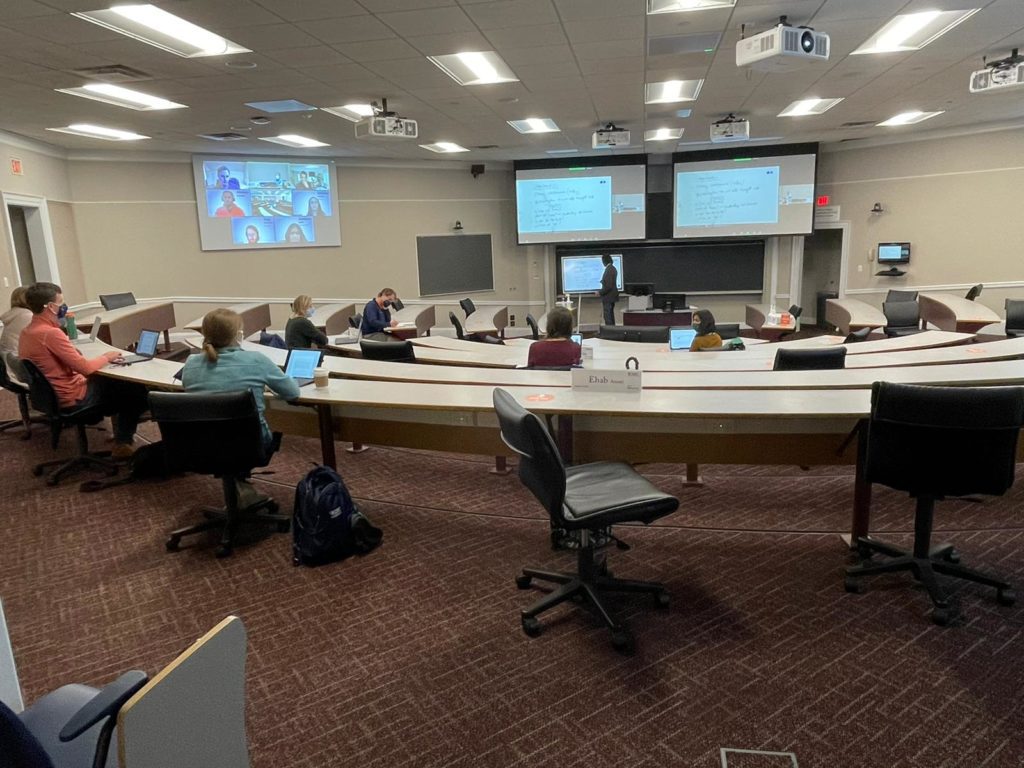
Student-led activities usually involved discussion-based events on ethically salient “hot topics”. For instance, some of our classmates well versed in the world of finance formed a panel that helped breakdown the remarkable reddit-driven GameStop stock rally and fielded some of the thorny ethical questions around it. The excitement this event created was particularly special for me because it captured one of my intuitions at the time of founding the club — interest in business ethics can sometimes be better tapped into by student-driven initiatives than by traditional classroom discussion.
Finally, the club was keen on organizing social events for its members. These events were left very open ended, with small groups collecting at private apartments, breweries and wineries without any specific agenda laid out beforehand. The thought process was, once again, to create spaces where club members can freely interact, inevitably leading to discussions around ethical issues that are top of mind.
I would hasten to add that none of this would have been possible without the club’s leadership team that were with me every step of the way, starting at the very beginning while conceptualizing the club and creating its constitution, on to marketing it to the student community, then to executing the club’s events and to finally handing over its reins to next year’s leaders. The club also could not have hoped for a cooler and more passionate faculty advisor, none other than Bobby Parmar.
What are you hoping the club will accomplish as Darden returns to more in-person programming?
Having to operate for the most part in a virtual or highly restrictive in-person environment was a challenge for all student clubs and Business Ethics at Darden, in its infancy, was no exception. The success of our first year though fills me with great hope for the strides that the club will make as the school returns to normal operations. One that I am really excited about is the possibility of an ethics conference, involving participation from other business schools. In addition to talks and panels, the conference could involve a case competition or a Shark Tank-like pitch of an ethics inspired startup idea. My conversations with MBA students at various top schools convinces me that the effort required for such an endeavor would be well justified given the scale of the potential impact.
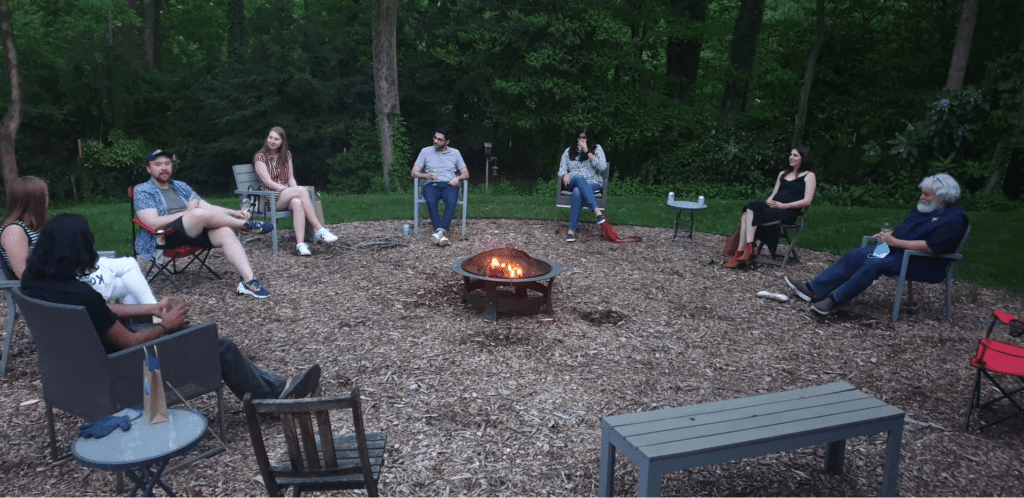
You’ve just graduated (congrats!)! What are your post-Darden plans?
After giving serious consideration to working in economic development, I decided that a career in business academia best combined my own passions with the potential to (hopefully one day!) create impact. I am applying for doctoral programs at leading business schools in the US and in Europe this fall. A life of research with practical implications and of teaching the next generation of leaders is a vision that appeals to me greatly!
Be sure to consult the Latest News regularly for the most updated news releases and media hits. Check out faculty thought leadership published on Ideas to Action. And stay connected with us via social media: Facebook, Instagram, LinkedIn, Twitter, WeChat.

